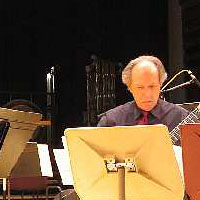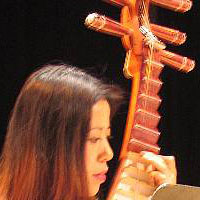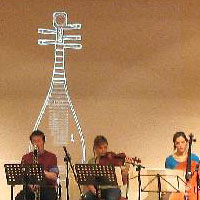Cheng Yu : 5 string pipa
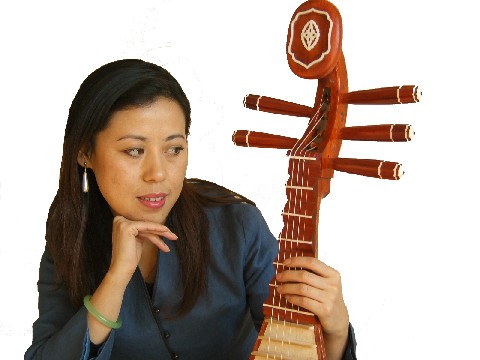
5-string pipa: creation, construction, composition and performance
The pipa (Chinese lute) boasts a history of two thousand years and is regarded as the quintessentially Chinese lute. Both the 4-and 5-string pipa originally came to China through the "Silk Road" where they evolved to become the core court and literati instruments during the Tang dynasty (AD 618-907). From China they travelled on to Korea and Japan. Whereas the 4-string pipa continues to thrive in China today, the 5-string pipa was mysteriously lost around the 8th century. Both the 4-and-5-string Korean pi'pa had totally disappeared by the 1930s, whilst the Japanese 4- and 5- string biwa managed to survive in more "original" forms with crooked heads, similar to today's Middle Eastern oud, and are still played using a large plectrum, mainly as accompaniment in historical story-telling genres.
Apart from a few reconstructions of the Tang pipa and reinterpretations of its surviving ancient music during the late 1980-90s, there have been no attempts to redevelop the five-string instrument either in China or abroad. It should however be mentioned here that there was an attempt by Professor Lee Sung-chun (1936 - 2003) in Korea to redevelop the Korean pi'pa in 1989, but due to the absence of pipa players in Korea the project was never completed.
This project has not only enabled the birth of the first 5-string pipa in the history of Chinese music for over a millennium, it has also created new works for the lost/new instrument.
Recreating the 5-string pipa
The intention with the 5-stringed pipa is not simply to duplicate the old model - a "museum piece" - but to create a unique performance instrument for 21st century musical contexts. It has been designed to exploit the potentialities for expressive power and the tonal and sound ranges made possible by modern knowledge and technical developments. Since the 4-string pipa is famed for its unique "metal and stone" (jinshi zhi sheng) sound, the 5-string pipa should be more resonant, with more bass and the possibility of forming chords of a greater variety of tone colours, multiphonic notes and harmonics, while retaining the brightness of the 4-string pipa in the upper register.
Characteristics of the 5-string pipa
The current 5-string pipa combines historical elements and modern developments from the existing Chinese, Korean and Japanese 4-and-5 string pipa, pi'pa and biwa. The lower fifth string enables its tonal range to exceed 4 octaves (compared with 3 and a half octaves for the 4-string pipa). There are two crescent-shaped sound holes on the front which are absent from the modern 4 string pipa, the sound box is larger and more hollow and the internal structure is very different. The aim is not to replace the 4-string pipa but to embark on a journey that will break new ground and take the Chinese pipa to a new level: somewhere it has never been before. As important as the organological dimension, however, is the music that has been especially composed for this instrument. In this respect, the cross-cultural quality of the compositions fits well with the origins of the instrument in the ancient Silk Road and East Asia.
Patent Rights
- "5-string pipa new model"
- "5-string pipa construction method"
In February 2005, Cheng Yu received certificates from the China State Culture and Knowledge Patent Right and Law Bureau for two patent rights to the "5-string pipa new model" and "5-string pipa construction method" for her creation of the 5-string pipa. She is pleased that her two years of work on this project has achieved recognition of its cultural and musical significance by the Chinese government. However, the purpose of the 5-string pipa is to provide a starting point for the new 5-string pipa, to develop and build on the current stage - as the Chinese would say, "cast a brick to attract jade" (bao zhuan yin yu).
Premiere in London
In February 2004 Cheng Yu was able to proudly present her newly constructed 5-string pipa and premiere her concerts of cross-cultural music in London. It involved composers across the world: Xu Yi (French Chinese, living in Paris), Dr. Gillian Carcas (British, living in West Sussex), Dr. Gyewon Byeon (Korean, living in Seoul). Dr. Stephen Dydo in the USA composed a piece ("Wind Chimes") for 5-string pipa and guitar. Musicians from the East, the West and the Middle East took part in the premiere performance. Cheng Yu is the first person to have re-created the 5-string pipa and innovatively developed it for 21st century use.
Programme
Dr. Gillian Carcas - "Avraham Avinu" (pipa, nay and percussion)
Sephardic melodies were the source material used to construct the music. One is a song of longing to be in Jerusalem and to be able to worship at the Western Wall, part of the foundation of the second Jewish Temple which was destroyed by the Romans. The other, "Avraham Avinu", Hebrew for "Our Father Abraham", is about the birth of the founder of monotheism. Combining old and new is very much part of the pipa project. The ancient pipa originated from the Middle East, and I have included a ney (a flute, and a darabukkah (a drum), both Middle Eastern instruments with an ancient pedigree. I began composing the music on a visit to Jerusalem, and it has developed over time to allow room for improvisation by the instrumentalists.
Dr. Stephen Dydo - "Wind Chimes" (pipa and guitar)
The piece is most definitely of our day in terms of its rhythmic and pitch material. At the same time, it approaches one aspect of early Chinese music in its organization: that of its more complex modal environment. Although most Chinese performers now play predominantly pentatonic music in a few modes, the players of the Tang and Song dynasties played in many modes, and the music was more heptatonic. The mark of a great pipa player was the ability to perform in all of the known modes. "Wind Chimes" is made up of twelve continuous sections, each exploring a different mode. The harmony is "modern", since the guitar and the pipa explore different modes at different times, coming together at the beginning, middle and end of the piece.
Gyewon Byeon - "The Moment" (pipa and Korean Taegum flute)
The moment has arrived for East to meet West, traditional to meet modern, Chinese to meet Korean, wind to meet string, new to meet old... "The Moment" is a dynamic meeting place for one of Korea's wind instruments and one of China's string instruments. "The Moment" is a dynamic meeting point for one traditional instrument and one newly revised traditional instrument. "The Moment" is a dynamic meeting chance for one UK-based Chinese pipa player and a Korean eastern and western trained composer. Several opposing objects are meeting on stage at "The Moment".
Dance of the Yi People (pipa solo)
This is a popular piece composed in 1965 by Wang Huiran for the 4-string pipa and typical of the period. It breaks away from the more traditional styles of wen (civil - gentle and lyrical), wu (martial - powerful and dramatic) da (suite - long with combined sections) and xiao (individual - short, often with a total length of 68 beats). The music depicts a romantic view of young people from the Yi minority in Southwest China dancing joyously during an annual torch festival.
Xu Yi - "Pipayin" (pipa and flute, clarinet, viola, cello, and percussion)
Yin in Chinese has several meanings: introduction, interlude, sound, longing. Xu Yi explains that a long forgotten instrument is longing to be reborn to a new life with a unique, colourful sound and a wish to find a new place, a new identity in the contemporary world. The composer tries to combine the Chinese and western musical languages to find a fused musical language between the Chinese and western sound worlds. She adopts the more traditional Chinese pipa and guqin solo style with a loose and free feel for the pipa to contrast with the more strict, rhythmically bound structure which is the norm for Western instruments. She also attempts to explore the use of multiphonic and microtonal techniques for both Chinese and western instruments.
The Composers

Gillian Carcas was born in England, Gillian and began composing as a child. As well as pursuing her career in composition, which has involved various commissions and many performances by ensembles in the UK and overseas, Gillian has taught music and composition in institutions which include Southampton University and the Royal College of Music Junior Department. Her output includes over 50 pieces which cover a variety of genres, including vocal pieces, works for many different chamber ensembles, orchestral pieces, a chamber opera and electro-acoustic music.

Stephen Dydo is a composer and classical guitarist with an international reputation. His interest in Chinese music goes back to the 1970's, when he studied with Chou Wen-chung at Columbia University. Among the organizations performing his works are the New Calliope Singers, Group for Contemporary Music, Columbia-Princeton Electronic Music Center, New Jersey Percussion Ensemble, Composers' Conference, Composers Ensemble, Lenox Arts Center, League of Composers-ISCM, Stichting Combinatie van Utrechtse Muziekbelangen, etc. He now teaches at the Crestwood Music Center in Westchester.
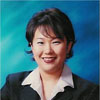
Gyewon Byeon is currently one of the most actively performed woman composers in South Korea. She has composed a number of works for Korean traditional instruments. Several her pieces were commissioned by very important institutions and orchestras such as KBS, Kyunggi and Chonbuk Korean Traditional Music Orchestras, the Center for Korean Traditional Performing Arts, the Department of Korean Music at Seoul National University etc. She is currently a research fellow at Seoul National University of Education and is teaching at several universities such as Seoul National University, Hanyang University and KAIST.
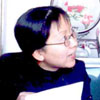
Xu Yi is an outstanding Chinese composer based in Paris. She has written over 30 compositions ranging from Chinese, Western and cross-cultural to electronic, multimedia, TV, film and theatre. The French State, Radio France and numerous festivals, ensembles etc. have commissioned works from her. About 30 of her compositions have been played on the radio and at various festivals in China, Japan, Europe, the USA and Canada. Several concerts devoted to her music have been held in France and Italy. Her composition prizes include the Best Chinese Recording Award for her trio Vallée Vide (1984) and First Prize in Composition, Paris Conservatoire, for her work Huntun. In 2001 Xu Yi was appointed professor of composition at the Cergy-Pontoise National Conservatoire.
Musicians
Cheng Yu (pipa), Jan Hendrickse (flutes), Stephen Dydo (guitar), Tim Garside (percussion), John Slack (clarinet), Michael Allen (percussion), Mara Miribung (cello) and Laura Metcalfe (viola).
Pre-concert Talk
Wednesday, 16 February 2005, 6 - 7pm, Brunei Gallery Lecture Theatre, SOAS.
Concerts
Wednesday, 16th February 2005, 7.30pm
Brunei Gallery Lecture Theatre, SOAS, University of London.
Friday, 25th February 2005, 12.30pm.
Guildhall School of Music and Drama, London.
The concerts were supported by SOAS and Asian Music Circuit.
Premiere in Taiwan
Following her successful London World Première on the 5-stringed pipa and its new music, Cheng Yu was invited to work with the Taiwan National Chinese Orchestra on new compositions for the newly created instrument. She performed at the The National Theatre in Taipei, and gave talks and lectures on the 5-stringed instrument at universities in Taiwan.
Here are some videos from this performance:
Wang Zhaojun - 王昭君
Dance of the Yao People - 彜族舞曲
Asturias
Sponsorship and Support
Cheng Yu's project to bring back to life the lost Tang Dynasty (8th century) 5-stringed pipa won 3 major British awards:
- Women in Music 2002)
- the Arts and Humanities Research Board (2003)
- the Arts Council of England (2004).
She was awarded a Commission Fund by Women in Music in November 2002. This enabled her to travel to China and Korea to reconstruct the instrument and work on a modern design, and to collaborate with three young and talented women composers. Following this, she was offered another grant for the project by the Arts Council of England. This grant was announced at the end of May 2003 and was for performances and a CD recording for her 5-string pipa project. She was awarded a further grant in July 2004 by the Arts and Humanities Research Board (AHRB) to enable her to carry out all aspects of the project: research, construction, further performances and a CD recording.
Many people and organisations have been involved in this project. Thanks are due in particular to Dr Keith Howard, Women in Music, the Arts and Humanities Research Board, the Arts Council of England, SOAS and the AHRB Centre for Cross-Cultural Music and Dance Performance, Asian Music Circuit, Cheng Yu's father Cheng Junming, the pipa maker Mr Tang Zhiping, Professor Li Xiangting, pipa master Lin Shicheng and many others in China who gave valuable feedback and suggestions on the construction of the 5-string pipa. Grateful thanks are also due to all the composers and musicians for their efforts and hard work, and Jan Hendrickse in particular who voluntarily took up the challenge of taking up three different flutes and arranging the musicians and the concert at the Guildhall School of Music and Drama.
Radio Program
After the concerts, Bournemouth Internet Radio Station (BIRST) recorded a programme about the 5-string pipa project. It is available at http://www.birst.co.uk/music/ChengYu/index.htm.
The Future
Cheng Yu sincerely hopes the 5-string pipa will not sink back into obscurity. However, the development of a new instrument needs encouragement and support from players, composers, academics, promoters, and society as a whole. Respected Chinese musicologist Huang Xiangping once remarked that culture should be a locomotive of history and not merely be consigned to a museum. If you would like to get to know the 5-string pipa, learn to play it, compose a new piece for it, or promote the instrument and its music, please do not hesitate to contact Cheng Yu.


